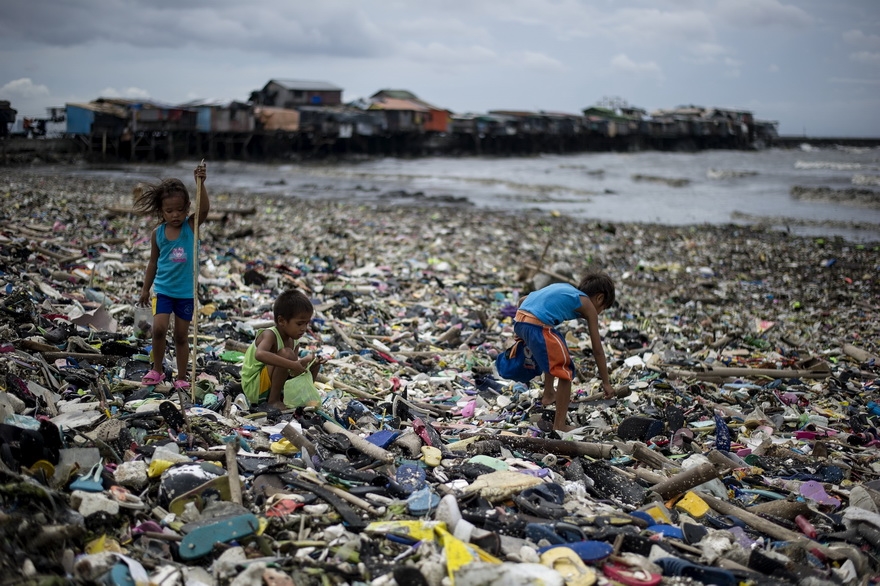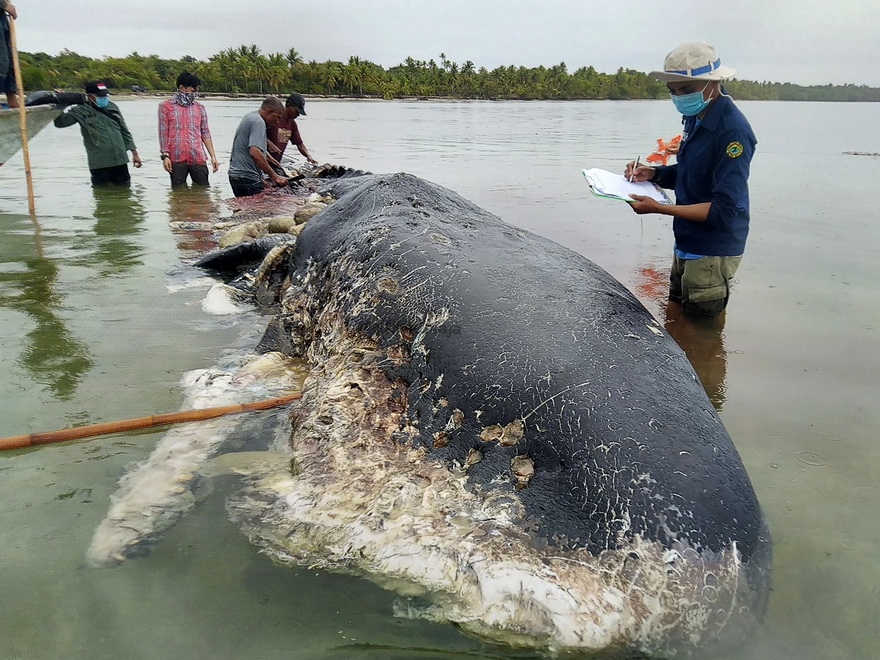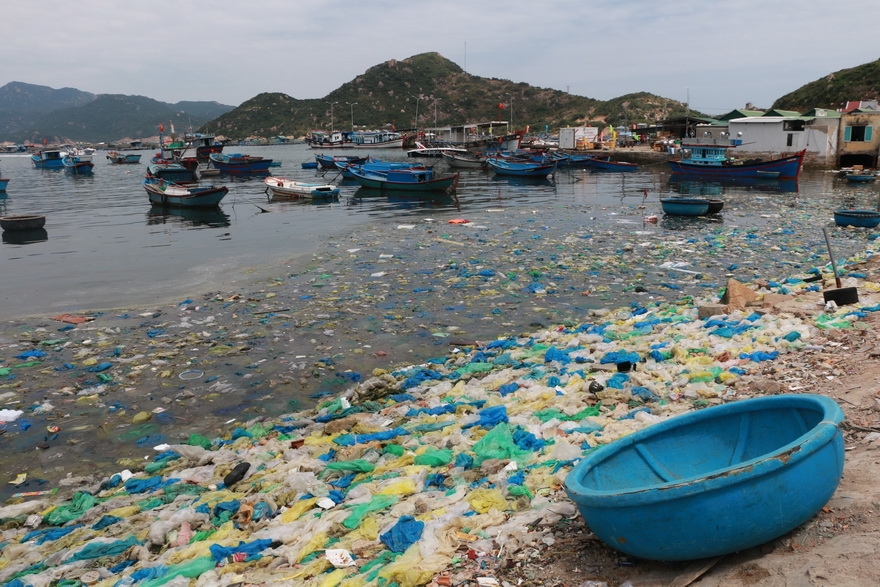Marine pollution, mainly caused by plastic waste, is now the world’s second biggest environmental challenge after climate change. ASEAN countries have taken specific actions to reduce the amount of plastic in the environment.
According to the United Nations Environment Program, about 8 million tons of plastic waste are being dumped into the ocean every year, threatening marine life. From small aquatic life like turtles to large ones like whales, all are victims of plastic in the oceans.
Asia is the top marine polluter, accounting for 60% of plastic waste discharged into the sea. The five Asian polluting countries are China, Thailand, Vietnam, Indonesia and the Philippines, four of which are ASEAN member states.

A garbage dump in Manila. Photo: AFP / VNA

A whale found dead at Wakatobi National Park in Sulawesi province, Indonesia. The animal's stomach contains 6kg of plastic litter.
Photo: AFP / VNA

Trash pollute Cam Binh island, Cam Ranh, Khanh Hoa. Photo: Duong Chi Tuong / VNA
|
According to the Ocean Conservancy and the McKinsey Center for Business and Environment, these five countries have reported huge demands for consumer goods but lack the infrastructure to dispose of waste, particularly plastic bags. With its rich marine resources and diverse ecotourism services, ASEAN is at risk of losing a major source of incomes if its marine environment is destroyed.
According to Theresa Mundita S Lim, director of the ASEAN Center for Biodiversity, various countries are carrying out specific programs to clean the environment, including the sea, by limiting the use of plastic products.
ASEAN countries have set ambitious goals to lessen plastic litter.
Brunei wants to phase out plastic bags in supermarkets by the end of 2019 and encourage the use of environmentally friendly bags, reported the Borneo Bulletin.
Thailand has set a target of recycling 60% of plastic litter by 2021. Since 2014, the country has given priority to waste disposal. It has restricted the use of plastic bags and bottles at government agencies and enterprises and banned plastic at tourist sites. The government is also considering taxing plastic bags. In Thailand, about 2 million tons of plastic waste are discharged into the environment each year.
Indonesia has pledged 1 billion US dollars each year to cut 70% of plastic waste in the ocean by 2025.
Vietnam is also taking drastic measures to tackle marine plastic waste. Most recently, the 12th Party Central Committee issued a resolution on sustainable sea economic development by 2030 with a vision to 2045. According to the resolution, the Vietnamese government has begun adopting a national action strategy on plastic waste management and studies towards building a management policy related to plastic pollution at sea.
In the Philippines, various local governments have controlled the use of plastic bags even though a ban on plastic bags has not been imposed nationwide. Several trade centers in the country have replaced plastic bags with paper while encouraging customers to use recycled bags.
In Cambodia, many big supermarkets have charged 0.1 US dollar for every plastic bag used to contain goods in order to reduce the use of plastic bags. Malaysia is also considering a proposal to ban plastic bags, while Laos has encouraged the use of recycled bags in public places.
Ministers of 10 ASEAN countries met at the Special ASEAN Ministerial Meeting on Marine Debris in Bangkok in March to discuss how to tackle the marine debris problem. All member countries agreed to the Bangkok Declaration and the Framework of Action on marine debris management in the ASEAN region.
|
Story: VNP - Photos: AFP&VNA